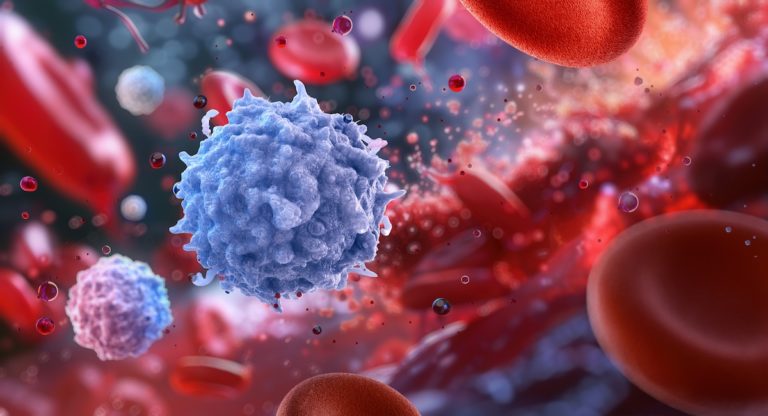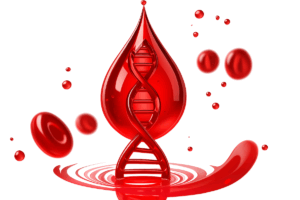Myeloproliferative neoplasms (MPNs) are a group of hematological malignancies characterized by the overproduction of red blood cells, platelets, or certain white blood cells. These disorders pose significant challenges in terms of accurate diagnosis, prognostication, and treatment.
Medical progress continuously reshapes our approach to each of these areas.
In particular, diagnostic strategies for better classification of MPNs have significantly evolved over recent decades, resulting in several updates, including the recent publication of guidelines by the European Society for Blood and Marrow Transplantation (EBMT)[1].
Our suggested read this month, “Evolution of WHO Diagnostic Criteria in Classical Myeloproliferative Neoplasms”[2], reviews these developments and highlights the increasing importance of genetic markers.
Among the most prominent markers are:
- In Essential Thrombocythemia (ET): JAK2, CALR, MPL, ASXL1, and TET2 mutations
- In Polycythemia Vera (PV): JAK2 mutations
- In Primary Myelofibrosis (PMF) and pre-PMF: diagnosis relies heavily on genetic markers alongside bone marrow morphology
The review underscores the parallel evolution between the International Consensus Classification (ICC) and the World Health Organization (WHO) diagnostic criteria. Both systems now emphasize the role of genetic markers in establishing clonality, classifying subtypes, and guiding prognosis. Only minimal differences remain between the latest updates – ICC (2022) and WHO 5th Edition (2024).
In summary, genetic markers are indispensable for confirming diagnosis, refining classification, and predicting outcomes in MPNs. At 4bases, we have developed HEMATO pro, a dedicated NGS kit for analyzing complex genomic variants associated with lymphoid and myeloid diseases. It includes 137 genes, such as JAK2, CALR, MPL, ASXL1, and TET2, ensuring comprehensive genetic profiling.
[1] Polverelli N, Hernandez-Boluda JC, Onida F, Gurnari C, Raj K, Czerw T, Kenyon M, Robin M, Sockel K, Ruggeri A, Sánchez-Ortega I, Arber DA, Arcaini L, Duarte FB, Battipaglia G, Chalandon Y, Ciceri F, Cross NCP, Drozd-Sokolowska J, Funke VAM, Gagelmann N, Gangat N, Gotlib J, Guglielmelli P, Harrison CN, Hobbs GS, Jain T, Khoury JD, Kiladjian JJ, Kröger N, Malcovati L, Martino M, Mesa R, Orazi A, Padron E, Palandri F, Passamonti F, Patnaik MM, Pemmaraju N, Radia DH, Reiter A, Russo D, Scheid C, Tefferi A, Vannucchi AM, Wiseman DH, Yakoub-Agha I, McLornan DP. Role of allo-HCT in “nonclassical” MPNs and MDS/MPNs: recommendations from the PH&G Committee and the CMWP of the EBMT. Blood. 2025 Mar 19:blood.2024028000. doi: 10.1182/blood.2024028000. Epub ahead of print. PMID: 40106773.
[2] Thiele J, Kvasnicka HM, Gianelli U, Arber DA, Tefferi A, Vannucchi AM, Barbui T, Orazi A. Evolution of WHO diagnostic criteria in “Classical Myeloproliferative Neoplasms” compared with the International Consensus Classification. Blood Cancer J. 2025 Mar 4;15(1):31. doi: 10.1038/s41408-025-01235-7. PMID: 40038244; PMCID: PMC11880409.





